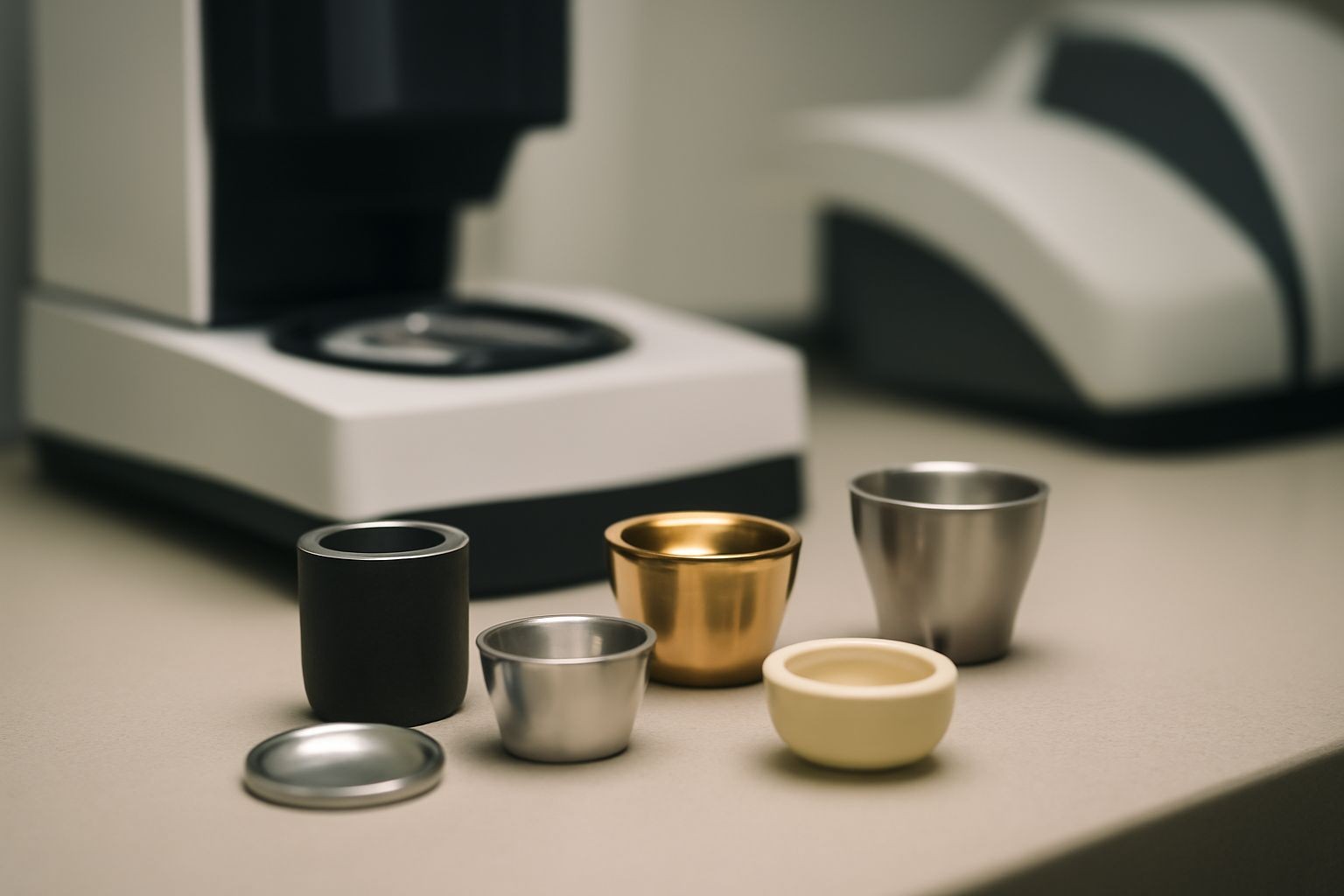Your cart is empty.
shop now
Your cart is empty.
shop now
Laboratories depend on the right crucible to keep results accurate and tests on track. Wrong choices can waste resources and cause repeat experiments.
Choosing heat analysis crucibles means thinking about material compatibility, durability, temperature range, and test requirements. The right crucible matches your instrument and helps maintain the integrity of science results.

I see that selecting reliable crucibles saves both time and budget. Making smart decisions ensures efficient testing, quick project completion, and fewer troubleshooting steps in research labs.
Laboratory tests rely on sample holders that handle tough conditions. The right crucible resists chemical corrosion and protects samples under high heat.
You should pick heat analysis crucibles made from pure materials like platinum, aluminum, or stainless steel. Check that each model fits well with your testing method, temperature range, and instrument brand or type.
| Crucible Material | Maximum Temperature | Best Application | Durability |
|---|---|---|---|
| Aluminum | Up to 660°C | Routine DSC tests | High for most organic samples |
| Stainless Steel | 800–1200°C | TGA, tough atmospheres | Very high, handles moderate corrosion |
| Platinum | 1650°C+ | High-purity, high-temp research | Excellent, long-term R&D use |
| Ceramic | 1200–1750°C | Oxidizing or harsh chemicals | High, strong in most environments |
Having the proper match between sample and crucible avoids skewed results or ruined tests. Chemical reactions or size mismatches can compromise expensive lab projects.
Always match the crucible to your testing material, chemical reactivity, and sample volume. Adjust for the exact testing needs, especially for terms like reactivity, possible contamination, or easy of cleaning for frequent reuse.
| Testing Application | Sample Type | Recommended Crucible | Why It Works |
|---|---|---|---|
| High-Purity Analysis | Pharmaceutical powder | Platinum | Resists contamination and extreme heat |
| Thermal Degradation | Polymer resin | Aluminum | Prevents unwanted reactions, easy cleanup |
| Oxidation Testing | Battery slurry | Ceramic | Handles harsh chemistry safely |
| Routine TGA | Inorganic mixture | Stainless Steel | Reliable at high temperature, robust lifespan |
Delays in receiving crucial lab consumables slow down research projects and quality control tasks. Labs need heat analysis crucibles shipped quickly to maintain testing schedules.
Fast delivery of crucibles increases lab productivity and allows better planning. It is especially important in fields like materials science and pharmaceutical development, where strict deadlines lead to repeat orders and limited production downtime.
| Industry | Delivery Time Needed | Reason for Fast Shipping | Typical Outcome |
|---|---|---|---|
| Pharmaceuticals | 24–72 hours | Regulatory timelines, batch release speed | Stable product launches (FDA Guidance) |
| Electronics | 1–3 business days | Prototype testing, quality control checks | Faster R&D and redesign |
| Materials Science | Within 1 week | Research deadlines, grant obligations | Project milestones met |
| Chemical Manufacturing | 72 hours or less | Continuous process, avoid long shutdowns | Continuous output and stable quality |
Standard crucibles may not fit every advanced research need. Custom-made heat analysis crucibles are designed for special projects and unique laboratory protocols.
Working with a supplier for custom crucibles ensures compatibility with rare equipment and meets exact shape, size, or sealing demands. You can request distinct alloys, unusual finishes, or exclusive depths, helping you solve testing problems and keep experiments running smoothly (Customization, Wikipedia).
| Customization Type | Typical Use | Benefit | Industry Case |
|---|---|---|---|
| Shape/Volume Adjustment | Limited-space furnace | Perfect instrument fit | Semiconductor R&D |
| Special Alloys | Improved corrosion resistance | Higher product lifespan | Petrochemical testing |
| Unique Lids/Seals | Airtight thermal testing | Safer volatile analysis | Battery research labs |
| Engraved Batch Numbers | GMP compliance | Traceability for audits | Medical device QC (ISO 13485:2016 Standard) |